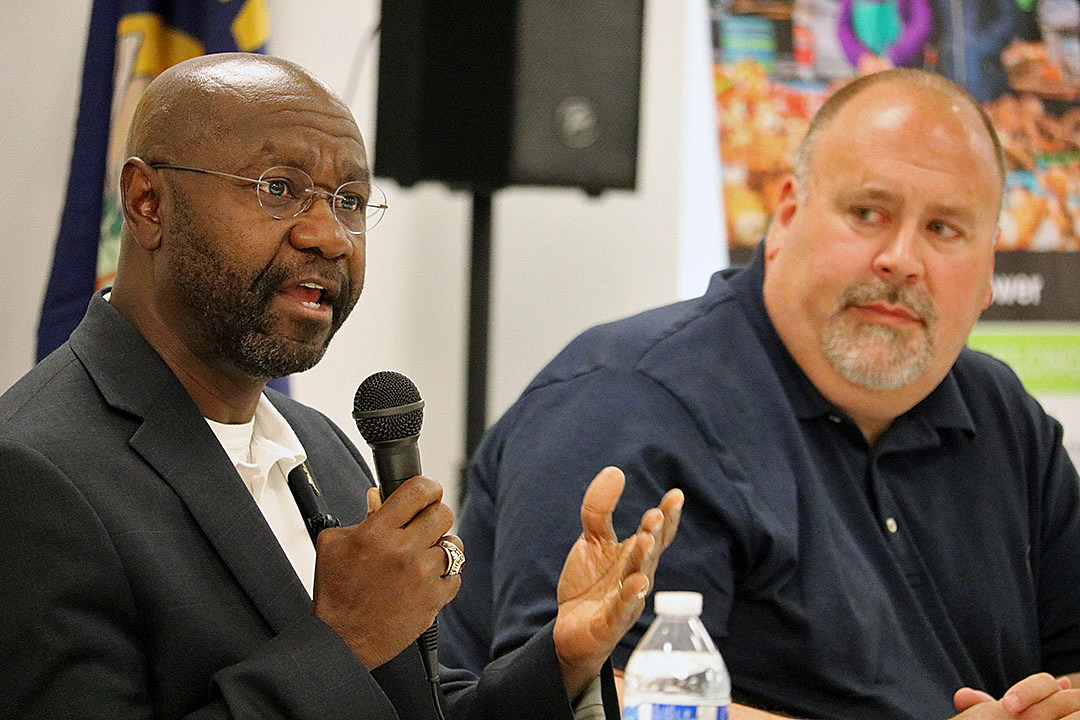The dream that is thought to be uniquely American – a land where there is a way only if one is willing – does not come for most people. But when it does, it leaves us with some awesome and inspiring stories.
Like the story of Wilmot Collins, mayor of Helena, the state capital of Montana.
Collins, 56, is the first black man to have been elected a mayor in Montana’s 130-year history. But the fact that he is not a native-born American makes his story more intriguing.

Helena’s mayor was born in Monrovia, Liberia. For the most optimistic Pan-Africanist, Collins’ connection to the States is steeped in a stronger history than the narrowness of nationality.
Liberia was founded in 1822 by freed slaves from the United States. The first batch of 86 free black men and women left New York in 1820 for the colony along the west coast of Africa.
The colony was named Liberia in 1824 and its capital was given the name Monrovia.
Initially known as Christopolis, the city was renamed Monrovia after ex U.S. President James Monroe who was an ardent supporter of the American Colonization Society (ACS).
Within four decades, between 15,000 and 20,000 freed slaves and Africans rescued from illegal slave ships joined the colony.
But it took some time to adapt to their new home as the freed Africans suffered from diseases, attacks from local people, the harsh climate, poor housing conditions, and lack of food and medicine.
As criticisms against colonization grew, the ACS, by 1840 was largely bankrupt and thus, asked the settlers to declare independence in 1846. The settlers took the move in 1847, founding the Republic of Liberia.
As far as slavery and colonization goes, Liberia was only the second black nation to gain independence after Haiti.
One could then say Liberians and specifically, Collins, have always been connected to the United States.
In 1994, Collins fled Liberia to the US during Liberia’s first civil war. His wife had already been in Montana so Collins petitioned for refugee status so he could join her.
By Collins’ admission in a TEDx talk he gave in 2017, the process of being accepted as a refugee took a frustratingly longer time than opponents of refugee settlements like to believe.
Becoming a US citizen is also a difficult task that requires both ethical and civic uprightness.
Collins became a member of the United States Navy Reserve for about 20 years and also worked with the Montana Department of Health and Human Services, specializing in child protection.
Through all of this, Collins was not spared harsh reminders of “his place” in American society and was often told to “go back to Africa“.
One time, a mock travel ticket was mailed to Collins’ home with the note, “Here’s your ticket. Go back to Africa.” The racism he experienced was worsened by the fact that Helena in Montana, is a predominantly white town.
When President Donald Trump went after four US congresswomen of color last year, Collins reminisced about his own experience. He also told The Intercept in an interview what he felt about Montana’s Republican, Steve Daines, support for Trump’s comments.
“It didn’t hit me until our senator decided to get involved. Really, I thought he [Daines] was speaking to me also. I’m no different from the lady from Somalia [Ilhan Omar],” said Collins.
“The only difference is she came a little earlier than me in terms of age. She’s an American. I came as a refugee. I am an American. For the president to discount that and talk about ‘go back to Africa,’ it was a slap in the face,” he added.
In November of 2017, Collins had defeated the four-term mayor of Helena, James Smith to become the city’s new chief executive, running as the Democratic candidate.
Perhaps, what the stories of Collins and Omar mean in a much scarier way is that no matter what place you rise to in American society, there are enough people to accuse you of not being a real American.
Collins had been right to say he personally felt attacked by Daines support of President Trump. After all, Collins is Daines opponent in the 2020 senatorial race in Montana.
This November, Collins will be counting on the optimism that put him in the mayor’s office to push him further into the US Senate.










